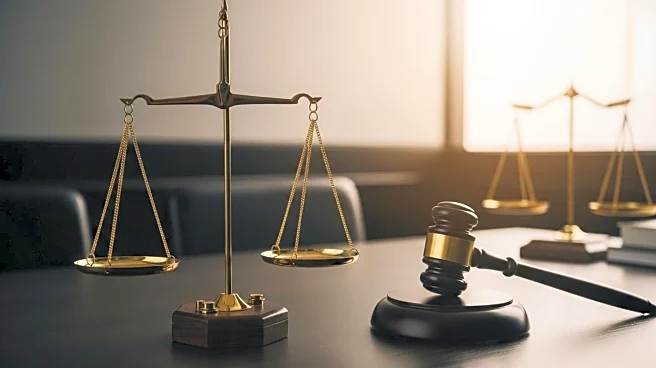What is the story about?
What's Happening?
Former U.S. Attorney and FBI Director James Comey has been indicted by an Eastern District of Virginia Grand Jury, raising concerns about selective prosecution. The indictment has sparked debate over whether Comey is being unfairly targeted, drawing parallels to historical instances where prominent figures were pursued by the government. The case against Comey is reminiscent of past prosecutions involving figures like Jimmy Hoffa and Reverend Dr. Martin Luther King, who were targeted by government officials. The legal proceedings against Comey are being closely watched, given his high-profile role in law enforcement and politics.
Why It's Important?
The indictment of James Comey is significant due to its potential implications for the justice system and political landscape. It raises questions about the fairness and motivations behind prosecuting high-profile individuals. If perceived as selective prosecution, it could undermine public trust in legal institutions and fuel political tensions. The case may also impact Comey's legacy, as he has been a controversial figure in American politics, particularly during his tenure as FBI Director. The outcome of this case could set a precedent for how similar cases are handled in the future.
What's Next?
As the legal process unfolds, the focus will be on the evidence presented and the arguments made by both the prosecution and defense. The case could lead to broader discussions on prosecutorial discretion and the role of politics in legal decisions. Stakeholders, including legal experts and political commentators, will likely weigh in on the implications of the case. The proceedings may also influence public opinion on the justice system and its ability to impartially handle cases involving prominent figures.
Beyond the Headlines
The indictment of Comey may have deeper implications for the balance between law enforcement and political influence. It highlights the ethical considerations in prosecuting individuals who have held significant power and influence. The case could prompt a reevaluation of legal standards and practices, particularly in cases involving political figures. It also underscores the ongoing debate about accountability and transparency in government actions.















